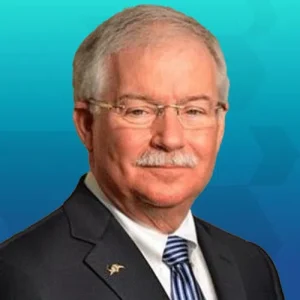Monday, November 17
Generation Proofing Your Firm for the Future
Mike Marks, Founding Partner, Indian River Consulting Group
There are now five generations of people in today’s workforce. Boomers (born on or before 1964) and Gen X’ers (born before 1980) are fading out and in the minority of total workers. The majority of the workforce are represented by Millennials (1981-2000) and Generation Z (Born on or after 2001). Firms are challenged on three fronts today. The first challenge is an exodus of deep customer and supplier experience that is retiring over the next five years. It remains to be seen how and if AI will help this first challenge. The second challenge begins with the stereotypes of the Gen Z’s and Millennials that they don’t want to work, they don’t stay, and they have unrealistic expectations. There are a single digit percentage that fit the current stereotypes, mostly those raised by helicopter mothers. The majority are competent, hardworking, and ambitious but they get frustrated working for old school leaders who are PMS (pale, male, and stale). The third challenge is already visible as sales reps close to retirement are calling on customers where decision makers are Millennials or Gen Z’s and the style mismatch is causing issues. As digital natives, they often know as much or more about graphic design than the sales reps that calls on them.
A firm that rigidly adheres to baby boomer values is risking their future success as the top young talent will simply go work for a different firm. The strategic question is, what does a firm need to do that makes them an attractive place to work for the emerging new workforce? Mike is on the board of the College of Business at Florida Tech and is mentored annually by three very bright Gen Z MBA students where he is the mentee and they are the mentors. Staying in touch with many of these graduates as they make their way in the world has revealed some interesting insights.
Firms that are customer centric, driven by personal values and integrity, and have built a high commitment work culture already are very attractive to the coming generation. Many owner-operator firms believe they already have this high commitment work culture, but this belief is often an artifact of being a legend in their own minds.
This session will provide a framework for executives that allows them to audit their firm’s attractiveness to millennials and Gen Z’s. Boomers and Gen X’s will learn about dysentery and the Oregon Trail. Some elements may be challenging and there will likely be several surprises. One takeaway participants will see is the differences between a compliant work culture and a culture where the staff are committed to the vision and mission of the firm.
Tuesday, November 18
Real World AI for Distributors – The Current State of Play
Mike Marks, Founding Partner, Indian River Consulting Group
Mike’s presentation two years ago to NASSD shared the forces of change impacting distribution and one of them was artificial intelligence, or AI. If anything, the business environment is even more volatile today with tariffs, government pivots, and global conflicts added into the mix.
The impact of AI within the distribution industry has been accelerating much faster than the introduction of E-Commerce. Many distributors, with revenues under $25 million, have deployed use cases and are adding additional cases. This session assumes that the audience has had some basic experience with ChatGPT or one of the other large language models (LLMs). The workshop opens with examples of what distributors are already doing with AI in 2025.
The balance of the session is about what to do and how to start each firm’s individual AI journey, and all will be different. Participants will have a customizable road map to begin the journey and an understanding of the risks of waiting. While working from a limited sample size, there appears to be about a 12-month lag from when a distributor gets serious about AI and when their first use case is fully deployed in their business. The subsequent deployment of use cases can be completed in a few months or even weeks. This means there is lag time if you wait to see what your competitors do. Additionally, early adopters invested for a perceived first-mover advantage that they may or may not get, so they keep a low profile and don’t want to share. In most cases, it would simply appear that competitors are providing new information services for their customers as pressure on gross margins accelerate.
Mike’s presentation two years ago to NASSD shared the forces of change impacting distribution and one of them was artificial intelligence, or AI. If anything, the business environment is even more volatile today with tariffs, government pivots, and global conflicts added into the mix.
The impact of AI within the distribution industry has been accelerating much faster than the introduction of E-Commerce. Many distributors, with revenues under $25 million, have deployed use cases and are adding additional cases. This session assumes that the audience has had some basic experience with ChatGPT or one of the other large language models (LLMs). The workshop opens with examples of what distributors are already doing with AI in 2025.
The balance of the session is about what to do and how to start each firm’s individual AI journey, and all will be different. Participants will have a customizable road map to begin the journey and an understanding of the risks of waiting. While working from a limited sample size, there appears to be about a 12-month lag from when a distributor gets serious about AI and when their first use case is fully deployed in their business. The subsequent deployment of use cases can be completed in a few months or even weeks. This means there is lag time if you wait to see what your competitors do. Additionally, early adopters invested for a perceived first-mover advantage that they may or may not get, so they keep a low profile and don’t want to share. In most cases, it would simply appear that competitors are providing new information services for their customers as pressure on gross margins accelerate.
Tuesday Special Session: “Stump the Consultant”
There is no presentation in this workshop. Mike will break the group into teams of 3-5 participants to come up with a burning question for him to answer – everything is fair game. In past sessions, questions have included: how to value a business for sale, opening a new green field location, making large capital investments for a new capability, incentive design, CRMs, succession planning, cybersecurity, tariffs, or terminating an old loyal employee who needs to go.
Utilize this great opportunity to pick the brain of an established consultant in the distribution space.
SPEAKER
 Mike Marks
Mike MarksMike Marks co-founded the Indian River Consulting Group in April 1987. He began his consulting practice after working in distribution management for more than 20 years. Over the years, his narrow focus in B2B channel-driven markets has created an astonishing number of deep executive relationships with virtually every business vertical in construction, process, MRO/OEM, agriculture, and healthcare.
Mike had the good fortune to spend significant time with Dr. Peter Drucker when he was in graduate school. Like Dr. Drucker, he has aspired to be a professional observer of the distribution industry’s growth and evolution for over half a century.
Mike has written extensively and is frequently quoted on many industry issues. He has extensive board experience on both public and private distribution firms. His contributions to the field include serving multiple terms as a Research Fellow with the National Association of Wholesaler-Distributors, permanent faculty at Purdue University’s University of Innovative Distribution, eight years as Graduate Adjunct Faculty in the Industrial Distribution Program at Texas A & M University and rendering several precedent-setting expert opinions in contract disputes between manufacturers and distributors.
Prior to forming IRCG, Mike held the position of Executive Vice President at Lex Electronics, an $800 million vertically integrated electronics distributor in Stamford, CT. Mike’s path to management in his early career was through increasing responsibilities in sales and sales management. He even completed a tour of duty as a manufacturer’s representative. Additional details can be found on his LinkedIn profile at https://www.linkedin.com/in/mike-marks-46a7081/.
Mike is 76 years old and is in a multiple year buyout with his partners. He has two grown children and two granddaughters. He serves currently as an outside director at Zero Zone, Alaska Rubber Products, Purity Life, and Exotic Automation. As an advisory board member in the College of Business at the Florida Institute of Technology he mentors students, teaches AI prompt engineering, critical thinking, and is chairman of the curriculum committee.







